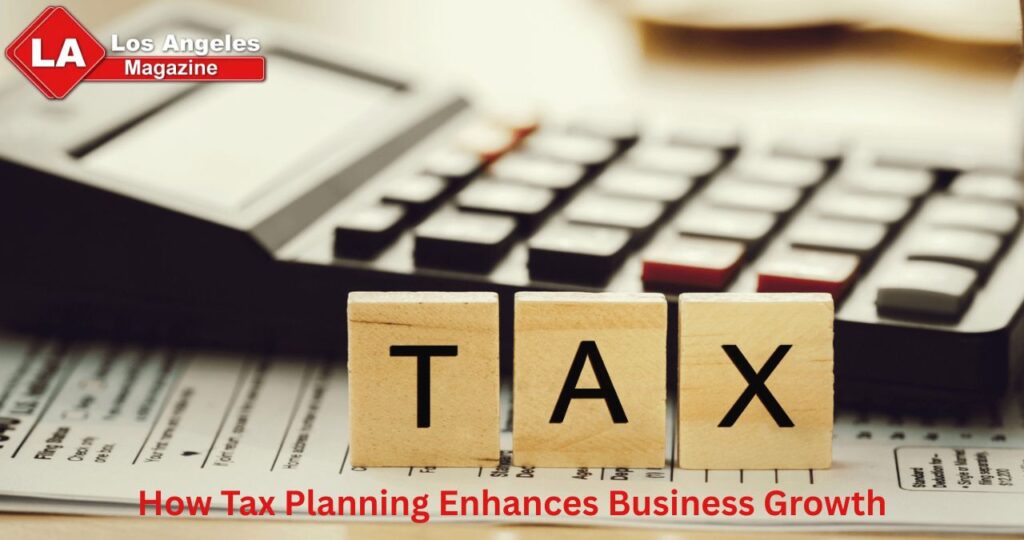Many small businesses face challenges in today’s economy, and one of the biggest hurdles they encounter is navigating the complexities of taxes. Often, entrepreneurs think of taxes only during tax season, but effective tax planning can be a game-changer for business growth throughout the year. It’s not just about fulfilling obligations; it’s a crucial strategy that can enhance a company’s potential and profitability.
When business owners take the time to plan their taxes, they can save money, reduce financial stress, and strengthen their overall financial strategies.
Understanding Tax Planning
Tax planning is the process of organizing a business’s finances in a way that can minimize tax liabilities. Successful tax planning involves much more than filling out forms and writing checks.
It requires understanding tax laws, regulations, and the specific financial situation of the business. This means thinking ahead and making decisions today that can lead to lower taxes tomorrow.
The Importance of Tax Planning
Effective tax planning serves as a roadmap for businesses. Just like how a driver needs directions to reach their destination, business owners need a clear plan to navigate their finances. Here is why tax planning plays such a critical role:
Minimizing Tax Liabilities
A solid tax plan allows businesses to take advantage of legal deductions, credits, and exemptions. By optimizing their tax structure, companies can keep more of what they earn.
Aiding in Cash Flow Management
When businesses plan their taxes properly, they can manage their cash flow more effectively. Knowing when taxes are due and how much should be set aside can reduce the chances of falling short when payments are required.
Allowing for Investment in Growth
When businesses save money through smart tax planning, they have more resources available for reinvestment. This could mean upgrading technology, expanding into new markets, or increasing employee salaries.
Reducing Financial Stress
Financial stress can hinder business growth. Tax planning reduces uncertainty concerning future financial obligations. When business owners know what to expect regarding taxes, they can focus their energies on core operations rather than worrying about unexpected bills.
Enhancing Decision-Making and Strategic Planning
Tax considerations often influence major business decisions such as mergers, acquisitions, and capital investments. With a tax plan in place, decision-makers can evaluate the tax implications of various options and choose the most advantageous path. This strategic foresight enables smarter, data-driven decisions that align with long-term goals.
Building Credibility with Stakeholders
Investors, lenders, and partners often view proactive financial management as a sign of a well-run business. Demonstrating that tax obligations are being met responsibly can build trust and credibility. This, in turn, may lead to better financing terms, stronger business relationships, and improved valuation in the eyes of external stakeholders.
Common Misconceptions About Tax Planning
Many entrepreneurs believe that tax planning is only for large corporations with high profits. This is a misconception. In reality, all businesses, regardless of their size, can benefit from tax planning. Here are some common myths:
Tax Planning is Only for Tax Season
Many business owners think about tax planning only when April rolls around. However, effective tax planning should be an ongoing process throughout the year.
It’s Too Complicated
Some entrepreneurs feel overwhelmed by the complexity of tax laws and assume tax planning is out of reach for them. Seeking professional help, such as from Nashville CPA services, can simplify this process and make it more manageable.
It’s Not Necessary
Many believe that as long as they are paying their taxes, they don’t need a tax plan. However, without a tax plan, businesses risk overpaying taxes and missing out on deductions that could otherwise help them save money.
Tax Planning Doesn’t Apply to My Type of Business
Another common misconception is that tax planning only applies to certain industries or business models. In reality, all types of businesses can benefit from tax planning.
Each type of business comes with unique opportunities and challenges, and a good tax plan takes these into account to maximize financial outcomes.
Tax Planning Is Just About Avoiding Audits
While avoiding IRS scrutiny is certainly a benefit of good recordkeeping and compliance, tax planning goes far beyond audit protection. Its primary goal is to legally reduce tax burdens and improve a business’s financial position.
Focusing only on audit avoidance overlooks the broader strategic value that tax planning offers, including better budgeting, reinvestment opportunities, and long-term savings.
Strategies for Effective Tax Planning
To maximize the benefits of tax planning, businesses should adopt several strategies. Here are a few key approaches:
Keep Accurate Financial Records
Businesses must maintain organized and thorough financial records. This includes tracking income and expenses meticulously. Accurate records make it easier to identify deductible expenses.
Understand Business Structure
The structure of a business- whether it is a sole proprietorship, partnership, or corporation- affects taxes. Business owners should familiarize themselves with how different structures impact taxation.
Plan for Deductions
Taking advantage of allowable deductions is a core component of tax planning. Business owners should know which expenses are deductible and keep records of those expenses throughout the year.
Consult a Professional
Working with a tax professional can save businesses from costly mistakes. Nashville CPA services offer guidance tailored to the specific needs and goals of each business.
The Impact of Tax Planning on Business Growth
How does tax planning directly contribute to business growth? Let’s take a closer look at a few ways this occurs:
Increased Profitability
By effectively planning taxes, different types of businesses can increase their profitability. Money saved on taxes can be redirected towards growth opportunities, such as hiring new staff or investing in marketing efforts.
Enhanced Competitiveness
Businesses that utilize effective tax strategies often have a competitive edge. They can offer competitive pricing or better services because they spend less on taxes.
Better Financial Decisions
Tax planning enables business owners to make informed financial decisions based on accurate projections of their tax liabilities. This forthrightness helps in budgeting and financial forecasting.
Facilitating Business Expansion
Having a solid understanding of potential tax implications assists when considering business expansion. Whether it’s entering a new market or launching new products, tax planning provides a clearer picture of the costs involved.
Unlocking Business Success through Tax Planning
In today’s fast-paced business world, effective tax planning is not just an option; it is a necessity for achieving success. By understanding the importance of tax planning and adopting the right strategies, businesses can minimize financial stress while maximizing growth opportunities. Companies that invest in smart tax planning are positioning themselves for a brighter, more sustainable future.
Visit our website and read more.



